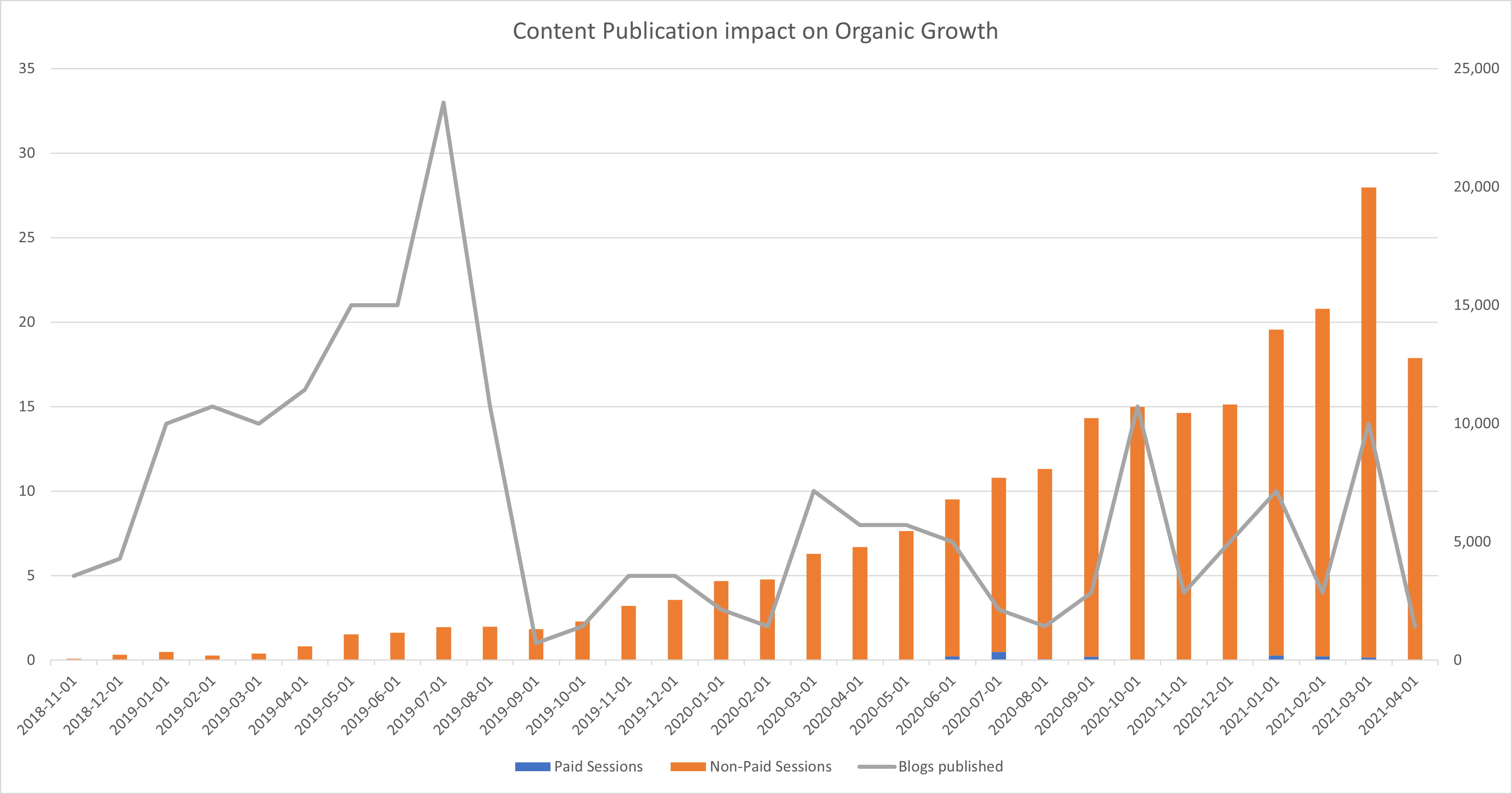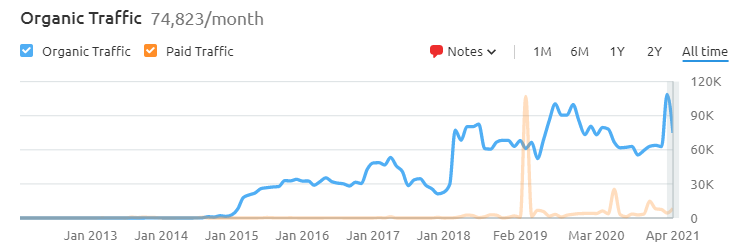Is Search Engine Optimization (SEO) mostly a fraud, provided by SaaS Startup Marketing Agencies to use the illusiveness of the acronym to buy time without having to be accountable for results?
Do Start-up marketing agencies use SEO to talk early-stage founders into a retainer that allows them to perform random optimizations and create noisy content?
Well…while I don’t believe the intentions are that malicious, the results sometimes are not that different.
Stop SEO as an early stage B2B SaaS Company
If you are a founder of an early-stage software company, I recommend you stop paying an inexperienced marketer who has done a couple of SEMRUSH or MOZ courses money to go tinker with your site structure, meta-data, and content planning.
Instead, focus your energy on writing. Your junior SEO marketing professional is not going to beat the Google Algorithm anytime soon, and any SEO agency or consultant who actually is able to compete on the very contested SEO field, is going to be paid big bucks by large corporations. So take my word for it, if you’re still in MVP or the PMF growth stage, and under $10M ARR in size, your efforts are better spent elsewhere.
There it is. I’ve said it. Yes, I’m following one of my key rules of being a marketer as well here. You need to have an opinion. It’s taken me many years and conversations, including with partners and colleagues where I sometimes felt I had to walk on eggshells, to come to this conclusion. It’s now a conviction that I’m willing to share broadly.
Answer the questions no one else has answered
An important rule for doing content marketing is that you have to understand and answer the questions of your audience. Once you do, it will not only help you understand whom you are writing for, it will also increase the relevancy of your work. While understanding how Google and other search engines interpret what you write, and help others find it, is a just and valid cause, I’ve concluded that it’s not worth a serious startup founder or CEO to spend time, or even money on.
So where do you put your content marketing energy? Just write. Let’s let the data do the talking. I’ve worked with 100+ software companies for the past 15 years on marketing, go-to-market, and growth strategy. The one correlation between content marketing and growth success that I’ve been able to draw from that dataset is that CEOs and Founders who start to publish early can have an exponential impact. Set aside quality time to connect with your audience, listen to their needs and answer their questions, and ultimately turn that into reusable content like blogs or videos, and product improvements. I’ve seen founders who do this outperform most of the other startups I’ve worked with.
How to start with content marketing as a SaaS startup
- Abandon perfection - What’s cool about Google and other search engines like Youtube, Bing, and LinkedIn, is that the audience and algorithms will filter out your best work, so you don’t even have to write perfect essays. Just be genuine and answer your audience’s questions, and you’ll be rewarded with traffic, engagement, and ultimately growth.
- Now that you’ve done #1, and shed of the need to write perfect posts, end every day by writing down a question someone had for you (a customer, partner, investor, or team member), that might be shared by others, and that you could not answer by pointing to an existing blog. You can even type in the question into Google, and see if you get good answers. If not, it’s time for you to do step 3, and start typing.
- Next, draft some notes about possible answers. Set time aside the next morning (or whenever you are most productive/creative), and dump the words on a sheet. Don’t worry about formatting, style, or structure. Just write is if you’re having a conversation with the person who asked you the question. If it helps, just record an audio file that you can use to get transcribed (check out rev.com) or have a professional writer turn it into publishable content.
- Of course, some SEO work can impact how your content drives session growth and becomes visible. The URL that you use to publish, the title of your article, and the metadata all help people find what they are looking for. Just don’t prioritize it before the 3 previous bullets.
A great video on how value beats the focus on perfect style, cadence, and structure is this class for PhDs and grad school students, that is a great “handbook” for creating content that can really connect with your ideal audience.
Eric Hoffer, the philosopher longshoreman, had a great talent for writing short books, with a higher “density” of new ideas and insights than many others. He used to write one paragraph before going to bed, to capture the one idea or insight he had that day, and then he would finish the paragraph when he got up in the morning.
There is not an idea that cannot be expressed in 200 words. But the writer must know precisely what he wants to say. If you have nothing to say and want badly to say it, then all the words in all the dictionaries will not suffice.
To encourage you to write here’s another great quote from Hoffer:
To overestimate the originality of one's thoughts is perhaps a less serious defect than being unaware of their newness. There is a more pronounced lack of sensitivity in underestimating '(ourselves and others) than in overestimating.
To back up my strong claim in this post, here is some data. This graph shows the content publishing on the Kalungi blog, vs. session growth over time. While we started to do specific SEO optimization in the middle of 2020, it’s hard to say how much that contributed to the ongoing growth. We probably are getting a bit more of the right traffic now, and of course, the sustained momentum is helped by ongoing publishing and optimal SEO.
My thesis however is that the early investment of a founder or core team member to create a high volume of relevant, valuable content, is the key factor.

While I cannot share that confidential data, I’ve worked with 50+ B2B SaaS Companies with the founder, or through Kalungi as their startup marketing agency.
We have consistent data that shows how early-stage founders who commit to doing content marketing themselves, and publish articles that answer important questions for their audience, have an incredible impact on later SEO rankings.
At Mightycall, we started blogging in the summer of 2014 and posted the majority of content during 2014 and 2105, and it led to a fantastic organic growth curve in the years after.

Finally, of course, it’s worth spending time on SEO as well. At Kalungi, one of our most critical drivers of high-quality leads is a blog focused on our most strategic keywords: Top 13 B2B SaaS Marketing Agencies to Look Out for in 2023 and we wrote that with SEO in mind. What helped it shoot up the ranks to the top 3 positions though were a lot of the earlier made content investments that supported it. Here are a couple of related posts:
